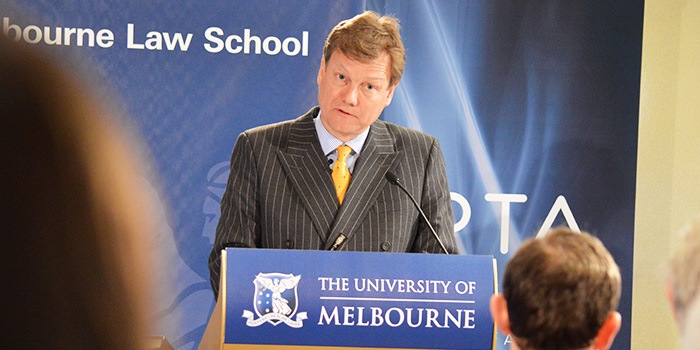Appraisal for IP court development in UK
A radical attempt to improve access to justice in intellectual property cases in England and Wales has been a success, The Hon. Justice Colin Birss said.

Speaking at the 7th Francis Gurry Lecture on Intellectual Property, Justice Birss said a series of reforms earlier this decade in the Patents County Court, which led to the foundation of the Intellectual Property Enterprise Court (IPEC), had made IP cases faster and more accessible to small and medium businesses.
The former computer programmer oversaw the transition as inaugural judge of the IPEC in 2010.
Some of its major features include having a specialist judge; active case management; trials lasting no more than two days; a cap on costs recoverable (£50,000); a cap on damages (£500,000); and a track for small claims.
Justice Birss said the system had generally proved popular, with far more cases being heard than in previous years, and litigation costs decreasing substantially.
"IPEC is busy because there are businesses attracted to this because of the cost cap limits and downside risk is minimised," Justice Birss said.
"Results…speak for themselves."
Justice Birss, who was guest speaker at the Sydney, Canberra and Melbourne events, said the revitalised court and its procedures had the IPEC competing for cases with similar courts in continental Europe.
"There has been dialogue at a lawyer level and a judicial level with colleagues across Europe," he said.
"There is no doubt the existence of the German patent court is one we in London say we are in competition with."
The Englishman said the court had also given far more opportunities for upcoming lawyers to be more involved in trial cases.
"In my experience, the IPEC court is a great place for young, bright lawyers to focus on real issues and see action in a challenging environment," he said.
"It works extremely well."
Attempts to develop a similar court to IPEC in Australia have not been successful.By Andy Walsh